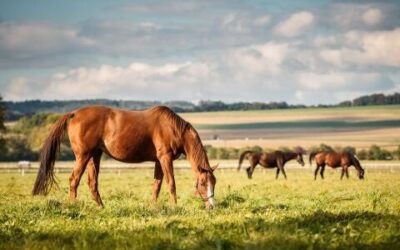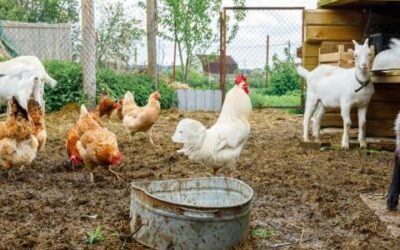
When it comes to feeding your high-performance horses, it is essential to create a diet that supports their muscle development while providing them with the nutrients they need to thrive. However, this comes at a delicate balance of not overfeeding them and overwhelming their bodies with unnecessary ingredients and calories than can cause them to gain excess weight, which puts additional strain on their bones and joints. For this reason, it is essential that you carefully consider proper performance horse nutrition so that they can be at the top of their game.
Forage
The pillar of any horse’s diet, especially performance horses, should always be forage-based products. Horses evolved as grazing animals and are designed to have forage consistently moving through their digestive tract. To accomplish this, your horse should have access to hay, pasture, or chopped hay throughout the day. Generally speaking, horses should eat 1.5–2% of the body weight in hay each day; for a 1,000-pound horse, this translates to 15–20 pounds of hay. If your horse requires additional calories in order to stay in peak condition, we often recommend a timothy alfalfa hay blend as the best horse feed for performance horses.
Many performance trainers choose to supplement their horse’s daily hay rations with alfalfa hay. This hay contains a myriad of benefits. Not only does it taste great, but it also has higher levels of protein, which fuels their muscles. The alfalfa-based forage contributes a “slow-release” energy during exercise and competition, providing a continuous source of energy for the working muscles. Additionally, alfalfa has been shown to act as a “buffer” in the stomach and hindgut, helping to safeguard your horse against developing ulcers.
Ration Balancers and Supplements
While some equestrians choose to feed grain, many performance trainers are moving toward feeding their horse ration balancer concentrates. These highly concentrated forms of grains provide your horse with the essential nutrients that they may not be receiving from their forage (such as salt and selenium) without overwhelming their digestive tract with grain products. Typically, equestrians find that they only need to feed their horses a few pounds of a ration balancer product in order to provide their horse with adequate nutrient levels. Be sure to refer to the feed tag on your particular ration balancer to ensure you are feeding the right amount for your horse’s size, breed, and activity level.
Additionally, some horses may benefit from performance horse supplements, such as joint support, digestive support, or coat and skin support. We often recommend that horse owners mix their supplements with a bit of chopped hay (not grain) when feeding them to their horses. This is because the forage moves at a slower rate through the digestive system, ensuring that your horse is digesting more of the nutrients from the supplement, getting the most benefit possible. This also means you are getting a better bang for your buck!
It is important to assess your horse as an individual to confirm that their diet is working for them. Well-rounded performance horse nutrition will give them adequate amounts of energy for their job while continuing to support their body’s condition. If you notice that your horse is losing weight or muscle, particularly over their topline, it may be time to reassess your performance horse feed. Conversely, if they are gaining excess weight, you may want to reduce their caloric intake. If you have questions regarding your horse’s diet, we encourage you to speak with a veterinarian or an equine nutritionist.




